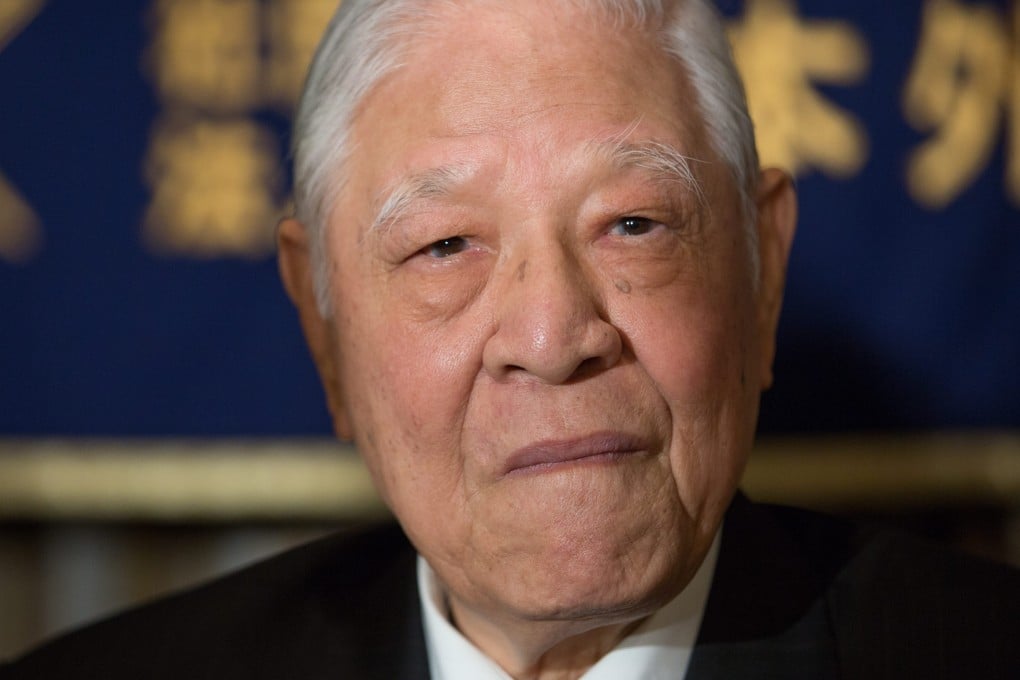Ex-Taiwan president Lee Teng-hui under fire for calling Japan the ‘motherland’
Former leader, 92, dismisses the administration’s efforts to celebrate the 70th anniversary of the end of the second world war as an attempt to curry favour with mainland China

Former Taiwan President Lee Teng-hui is under fire for referring to Japan as the motherland and dismissing the administration’s efforts to celebrate the 70th anniversary of the end of the second world war as an attempt to curry favour with mainland China.
“Seventy years ago, Taiwan [then a Japanese colony] and Japan were of one country,” he said in a Japanese magazine. “Taiwanese people at the time were no doubt Japanese subjects and they did what they could to fight for their motherland.”
The 92-year-old Lee, who joined the Japanese military before the war along with his brother who later died on the battlefield, said it was not true that Taiwan participated in mainland China’s eight-year war of resistance against the Japanese.
Lee criticised the series of events organised by the administration of President Ma Ying-jeou to celebrate the 70th anniversary of the war’s end, saying they were meant to “harass Japan and curry favour [with mainland] China.”
Lee, whose remarks were published in the latest issue of Japanese monthly Voice, has since received sharp criticism, including from Ma.
Expressing regret and shock, Ma demanded that Lee retract his remarks and apologise to the Taiwanese public.
“How can a person who was president of this country for 12 years and still enjoys presidential treatment as a retired president say something that sells out Taiwan, humiliates its people and embarrasses himself?” he said.